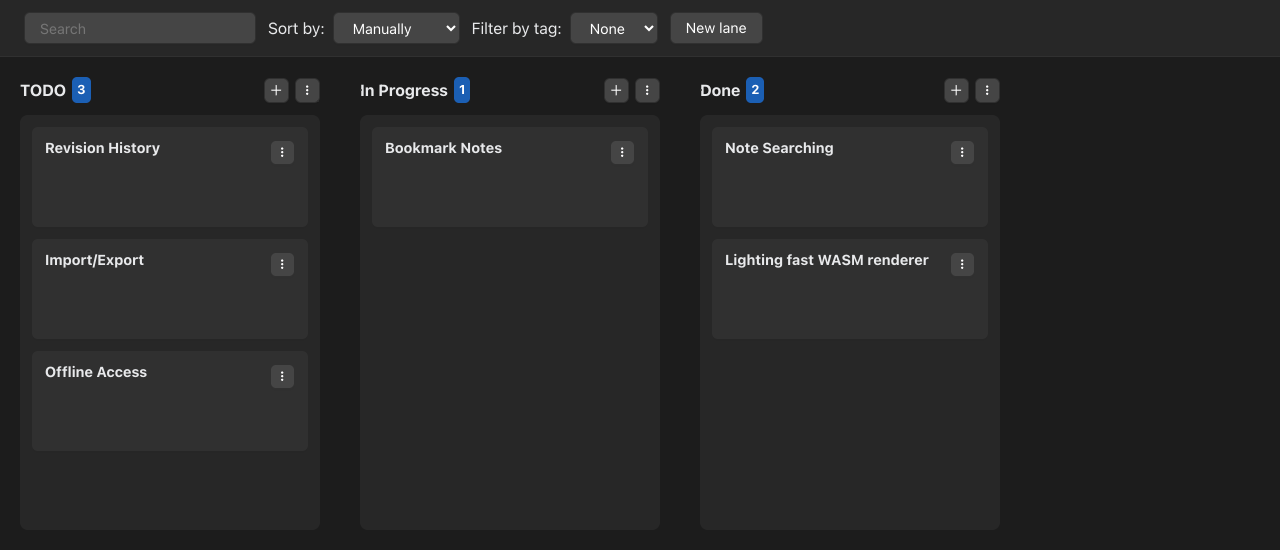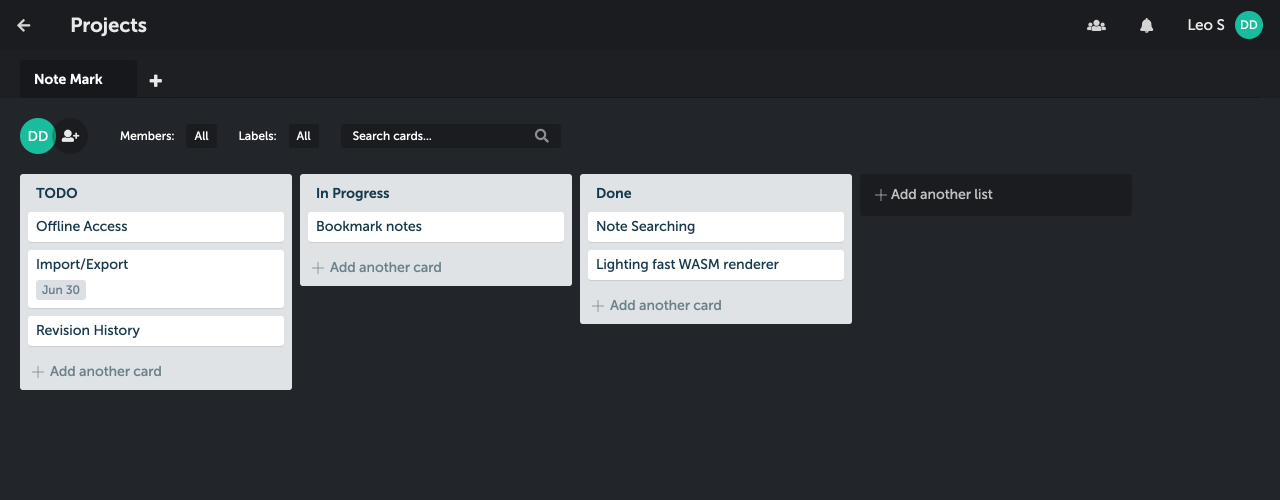Intro
Welcome to the 7th issue of Now Self Hosted, where I take a look at a selection of apps which can be self-hosted. This issue will explore a selection of task board (Kanban) apps, these are: Tasks.md, Nullboard and Planka.
Let me first add a bit of context to what a Kanban is. It is a way of managing tasks in different stages; by having lanes on a single board, the lanes could be called ToDo, In Progress and Done. The tasks are then added to the respective lane and moved to the next when needed. It is generally used to visualize current progress of work and spot bottlenecks. Although it can also be used to provide multiple lists of tasks that we can move around. A popular kanban-style application you may of heard of is: Trello (SaaS & Proprietary).
Tasks.md - V2.3.2
The first app is called “Tasks.md”. I opted to use Docker to deploy the app, it was a simple process; only needing one container and two volume mounts. It stores all app data through markdown files and does not require a database. Since it uses markdown it is also easy to access the content through external programs.

Taking a look at the UI it has a modern look and is very responsive. I like that it defaults to a dark-mode interface that has good contrast between each section.
It has quite a small feature set, whilst still remaining fully functional. You can drag-n-drop tasks around easily with the mouse, making it easy to move tasks from different stages/lanes. Each task can also have tags added to them, allowing for the in-built search and filters to be used.
The only downside to this app is that it only supports one board and no authentication, so it is mainly aimed at a single user with a single set of tasks.
Nullboard (Beta)
Moving on to “Nullboard”. It is another minimally featured app. It stores it’s data differently than “Tasks.md”, using the browsers localdata functionality. Which means this is only suited to one user and one device (unless you export the board). However, the app can be used offline. Unlike Tasks.md it features the ability to make more than one board and has a few more buttons for moving tasks around.

Something I don’t like are the buttons around the tasks and lanes are too small, to the point I find they are hard to read.
Currently there is no official containerized version, although this may not matter since it is just a static site, with no build step. So we can just serve using a web server like nginx or Caddy.
Planka - V1.17.1
Now taking a look at Planka, which I think is a more complete app, since it has the possibility to have multiple users (and boards). This feature makes it more suitable to use in a team. It utilizes a PostgreSQL database for storing data and has a pleasantly modern interface.

Unlike all the other solutions spoken about in this article, it features the ability to track time and set due dates on tasks. It even has an internal notification system.
It was installed with two required containers using Docker, one was the app the other was the PostgreSQL server. It required no further setup after it was running and worked smoothly after logging in. A feature I like; is that it has the capability of using Single-Sign-On through OpenID Connect, allowing me to seamlessly allow all users to have access through the authentication server (authentik).
Conclusion
I hope you enjoyed reading this issue of Now Self Hosted. After trying out these three apps, I found that I preferred Planka, since it had the ability to set due-dates and featured the ability to have multiple users.
Since these apps are built around Kanban, some may find these limiting and may want something more powerful. I currently use Vikunja, which has almost too many organizational task management features. Come and read my review of it in Now Self Hosted #4.
Thanks for reading and don’t forget to come back here again for the next issue of Now Self Hosted.
This post was not endorsed or sponsored by any of the mentioned parties. My views are my own.

